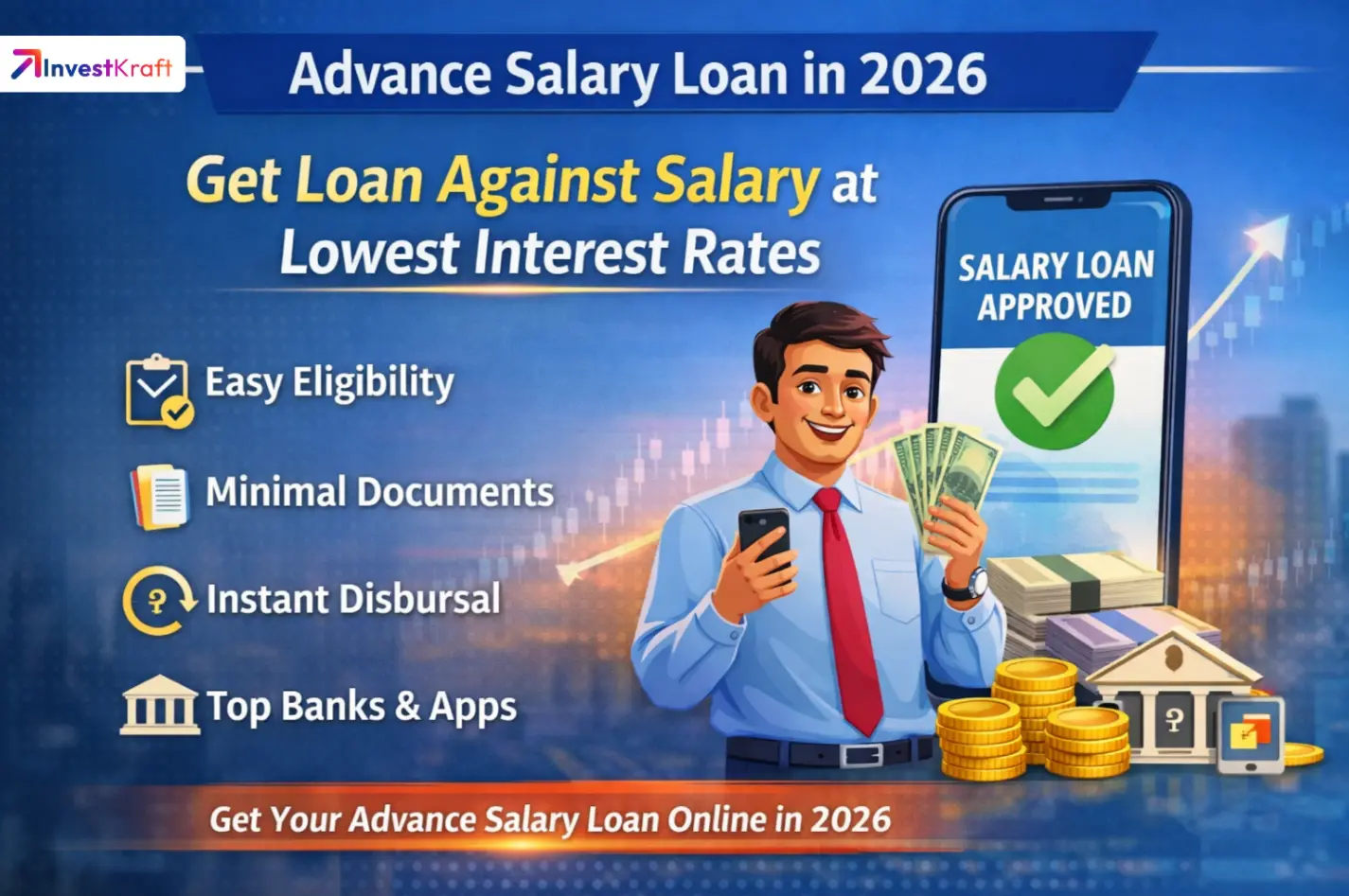Top Reasons Why Education Loans Get Rejected in India 2024

It will be challenging for students who already utilize credit but have a bad credit history as evidenced by a low credit score to obtain a loan accepted in the first place.
Normally, lenders may reject a loan application if they have any concerns about the borrower's ability to repay the loan. This may also result from poor income, trying to take out a loan that is too big for one's income, having larger borrowing risks because of additional loans being taken out at the same time, and being unable to offer the collateral that the lender requires. These justifications also hold for student loan debt.
Statistics of Students Seeking Education Loans in India
The following table contains all the important data points regarding the demand for education loans in India by students:
| Particular | Details |
| Overall Demand | The significant increase in education loan applications in 2022 compared to the previous year shows a growing trend of students availing loans. This surge could be attributed to the increasing emphasis on pursuing higher education and studying abroad. |
| Data before 2022 indicates a decrease, with the number of students receiving loans dropping by 25% between 2015 and 2019, according to CRIF insights. | |
| Loan Amounts | The loan amount for education has seen a significant increase, rising from 5.3 lakh to 9 lakh rupees between 2015 and 2019 (CRIF insights). This rise could be attributed to the escalating costs of education and students pursuing costly programmes. |
| There has been a noticeable rise in the number of loans exceeding 20 lakh rupees, indicating a growing preference for pursuing high-value education (as per MBA Crystal Ball). | |
| Reasons for Fluctuation | Due to the increase in Non-Performing Assets (NPAs), banks may exercise greater caution in approving smaller loans, which could be why there has been a decrease in loan applications. |
| The recent increase may be attributed to various factors, including heightened awareness of available scholarship programmes and government efforts to promote education loans. | |
| Additional Points | Education loan interest rates can vary depending on the lender and the specific terms of the loan. In general, these rates usually fall within the range of 9% to 15%. It is important for students and their families to carefully compare their options and consider the long-term impact of interest rates on their loan repayments. |
| The number of Indian students opting for international education has been steadily increasing, with around 7.7 lakh students choosing to study abroad in 2022 (as per ABP Live). |
11 Reasons Why Your Education Loan Might Get Rejected in India 2024
Financing your education can be crucial, but loan applications can get rejected. Let's check out one by one:
1. Improper Income:
Lenders place significant importance on an applicant's ability to repay the loan, and a stable source of income is a key factor in their evaluation. If the lender deems your income insufficient or unstable, it may result in a loan rejection. To bolster your loan application, demonstrating a steady income or enlisting a co-borrower with a stable income can be beneficial.
2. Incomplete Credit History
One of the primary considerations for lenders when reviewing student loan applications is the applicant's credit history. Having limited or no credit history can pose a challenge in assessing the borrower's creditworthiness, potentially leading to rejection. To enhance the likelihood of loan approval, it's advisable to establish a positive credit history by responsibly managing credit cards or small loans.
3. Lack Of Collateral Or Co-signer:
Certain student loans may necessitate collateral or a co-signer as a form of security. If you are unable to provide collateral or find a co-signer with a strong credit history, your loan application may face rejection. Exploring alternative loan options that do not require collateral or co-signers could be a great option.
4. Incomplete Or Inaccurate Application:
Submitting an incomplete or inaccurate loan application can result in rejection. It is essential to ensure that you provide all the necessary documents, including identity proof, address proof, income proof, and educational details. Thoroughly review the information you submit to prevent any discrepancies or errors.
5. High Debt-To-Income (DTI) Ratio:
A high DTI ratio signifies that a substantial portion of your income is allocated to debt repayment. Lenders generally favour borrowers with a moderate DTI ratio to ensure they can handle additional loan obligations. To improve your chances of obtaining a student loan, it is recommended to reduce your existing debt load or settle outstanding debts before applying. Ideally, aim to maintain a DTI ratio below 30%.
6. Age Limitations
Certain student loan programs come with age limitations, and if you fall outside the specified age range, your loan application may be turned down. Before applying for a student loan, it is essential to carefully review the eligibility criteria, including any age requirements that may apply.
7. Academic Performance:
In some cases, academic performance can be a factor in student loan applications, particularly for those based on merit or scholarships. If your academic record does not meet the lender's specified criteria, your loan application may not be approved. To improve your chances of approval, consider exploring alternative funding options or working on enhancing your academic performance.
8. Existing Default Or Bankruptcy:
A history of loan default or bankruptcy significantly impacts your creditworthiness. Lenders tend to be cautious about lending to individuals with such a financial history, making loan rejection more probable. It is crucial to address any outstanding debts or focus on rebuilding your credit before reapplying for a student loan.
9. Unapproved Educational Institute
Some lenders maintain a list of approved educational institutions, and if your chosen institution is not included on that list, your loan application could be declined. To avoid potential rejection, it's advisable to verify with the lender whether your desired educational institution qualifies for their student loan programs.
10. Bad Choice of Courses
Applicants must be aware that not all subjects are eligible for education loans, to avoid disappointment after rejection. Loans are typically approved for courses with high job prospects and better-earning potential. Banks are more likely to sanction loans for courses that have a higher likelihood of leading to a higher income.
11. Multiple Loan Enquiries and Applications
Each time you request a loan, the lender will review your credit report and these requests will be recorded on your report. Making numerous loan applications can have a detrimental effect on your creditworthiness and result in a lower credit score, potentially leading to the rejection of future loan applications.
Different Types of Education Loans That are Offered in India
There are 2 types of education loans and they are:
- Collateral Loan (Secure Loan): Collaterals are assets used to secure a loan. These can include independent houses, flats or non-agricultural land that meet the banks’ criteria, as well as liquid securities like LIC policies, FDs or government bonds.
- Noncollateral Loan (Unsecured Loan): Unsecured loans are available without requiring the borrower to provide collateral. They are commonly offered to students attending reputable universities or in cases where the borrower has a financially stable co-applicant. You can find the detailed eligibility criteria for unsecured loans by referring to the provided link.
Which Type of Education Loan has a Lower Rejection Rate?
When choosing an education loan, it is important to consider the type of loan which has a lower rejection rate. Opting for a secure education loan, which is collateral-attached, can decrease the chances of rejection.
Unsecured education loans are often rejected due to the lack of collateral. Banks typically require assets like agricultural land or property as security to mitigate the risk of non-payment or fraud.
In the situation of an unsecured loan, if the borrower is unable to repay the loan, the lender does not have any specific assets to repossess as collateral to cover the outstanding debt. This makes unsecured loans riskier for lenders and generally results in higher interest rates for borrowers.
How to Avoid Education Loan Rejection in 2024?
To secure an education loan, lenders assess various factors like academic performance, chosen course, university reputation, educational background and entrance exam results. Meeting the lender’s requirements increases the chances of loan approval. It is recommended to choose reputable universities and recognized courses to enhance employability prospects and minimize the risk of loan rejection.
What Should I Do to Fast Forward My Education Loan Application Process?
Planning is crucial when it comes to navigating the complex process of obtaining bank loans for education. This is because the process can be time-consuming, requiring a significant amount of effort and research. Therefore, students should prioritize making advanced plans to avoid any unnecessary delays or complications in securing the necessary funds for their education.
1. Get an Early Start
Students need to reach out to banks early when planning to study abroad, as they will need to submit supporting documents during the college application process. Being proactive in this regard can help ensure a smooth financial transition for international education.
2. Engage With Your Bank Before Admission Letters
It is a common misconception among students to delay starting the loan application process until after receiving acceptance letters from the universities. However, waiting can be a serious mistake. Banks require sufficient time to review and process loan applications, considering factors such as financial records, credit history and collateral appraisals. Therefore, it is advisable to complete these steps before receiving admission letters.
3. Take Initiative
It is a good idea for students to start the loan application process before receiving admission letters to expedite the timeline and reduce last-minute challenges. Once you have the checklist from the bank, start preparing the necessary paperwork. Discuss the loan amount, collateral and repayment schedule with the bank and inquire about the processing timeline for the loans.
4. Inquire With Multiple Banks
When applying for a loan, it is important to explore options beyond your current bank. Contact various banks to compare loan interest rates, required documents and processing times. To streamline the process, create a checklist for your current bank and ensure that all necessary documents are prepared before your appointment.
5. After Getting Accepted
By following the steps mentioned, you should have all the necessary paperwork ready to submit to the bank, except for the acceptance letter. As soon as you receive the admission letter, submit it to the bank and stay proactive in following up to speed up the loan application process.
6. Pay 1st Instalment Fee With Available Funds
You should prioritize paying the first instalment fee to the university, as many universities have strict deadlines for securing your spot by paying the first-semester fee. Rest assured that you can later reclaim the money through your education loan.
FAQs
Q. Do I Need A Guarantor To Avail An Education Loan?
- Yes, typically, you will need a guarantor to apply for an education loan. The guarantor plays a crucial role in the loan agreement, as they are legally responsible for repaying the loan if the primary borrower (the student) fails to do so. The choice of a guarantor is usually based on their net income and financial stability, as they need to demonstrate the ability to cover the loan in case of non-payment by the student borrower. However, it's essential to note that the specific requirements for a guarantor may vary depending on the lender and the loan program.
Q. How Much Interest Rate Is Levied On An Education Loan?
- The interest rate on an education loan can vary based on several factors, including the amount borrowed, the financial institution providing the loan, and prevailing market conditions. Interest rates for student loans are typically influenced by factors like the type of loan (subsidized or unsubsidized), the borrower's creditworthiness, and the loan repayment term.
While the range you mentioned (from 11.25% to 13.5%) is a general estimation, it's essential to note that interest rates can fluctuate over time and may differ from one lender to another. Additionally, government-backed student loans often come with lower interest rates compared to private loans. Therefore, it's advisable to check with specific lenders or financial institutions to get the most accurate and up-to-date information regarding education loan interest rates.
Q. What Does a Holiday Period Mean In An Education Loan?
- The holiday period in an education loan is the timeframe that occurs after the completion of the educational course and before the start of the loan repayment tenure. During this period, borrowers are not required to make loan payments, allowing them some time to find suitable employment and stabilize their financial situation before beginning the repayment of the loan. The length of the holiday period can vary depending on the terms and conditions set by the lender and the type of education loan.
The Conclusion
Obtaining a student loan is a valuable choice for funding your education, but it's essential to be aware of potential reasons for rejection. Education Loan Rejection Reasons, By proactively addressing these factors, you can enhance your chances of loan approval and access the financial support needed to pursue your educational aspirations.
Considering Investkraft Bank Personal Loan for Education is a dependable option. With its flexible repayment plans, competitive interest rates, and dedicated customer support, Investkraft aims to streamline the loan application process. Nonetheless, it's important to note that loan approval is contingent upon meeting eligibility requirements and passing a credit assessment.
Verify Phone Number
Related Post

How Much Personal Loan Can I Get? Salary, EMI & Eligibility Calculator Guide
Everybody needs a personal loan at some point. Some people need it for emergencies. Some need...
Read more...
How to Get an Instant Personal Loan for Medical Emergencies in India (Fast Approval)
Medical emergencies never ask for permission. One sudden illness, accident, or complication is...
Read more...
Advance Salary Loan in 2026: Get Loan Against Salary at Lowest Interest Rates
There are times when you need money but you do not have property, fixed deposits, gold, or eno...
Read more...
How to Get an Instant Personal Loan Up to Rs.50,000 Without a PAN Card
Have you ever been in a situation where you needed a personal loan instantly but did not have...
Read more...
Instant Personal Loan Without CIBIL: How to Get 50,000 to 5 Lakh Easily
Sometimes, an emergency financial situation comes up, and we suddenly find ourselves out of options....
Read more...
A Complete Guide to Consumer Durable Loans in India 2025
Are you dreaming of a sleek new refrigerator, a powerful washing machine, the latest smartphone, or...
Read more...
A Complete Guide to Getting a Loan as a Self-Employed Individual in India
Being self-employed comes with a lot of freedom—you set your own hours, follow your passion, a...
Read more...
Top 10 Must-Know Tips Before You Apply for an Education Loan in India 2025
Embarking on higher education is a pivotal moment in life, a stepping stone towards achieving...
Read more...
Everything You Need to Know About Personal Loans for Women 2025
The entrepreneurial spirit knows no gender. Across the globe, women are brimming with innovative ide...
Read more...
How Professional Loans Can Help Freelancers and Entrepreneurs Grow Their Business?
India, a vibrant hub of innovation and enterprise, is witnessing a remarkable surge in both fr...
Read more...Reach out to our Experts if you have any Doubts
Like the best things in life, Consultations @InvestKraft are free
Drop a Mail or give us a Missed Call & Begin your Investment Journey here







